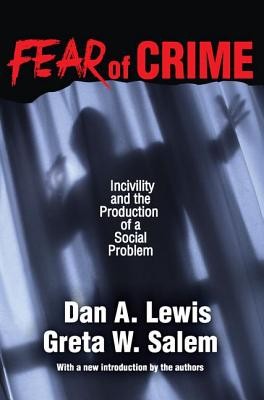
- We will send in 10–14 business days.
- Author: Dan A Lewis
- Publisher: Routledge
- Year: 2016
- ISBN-10: 1412863104
- ISBN-13: 9781412863100
- Format: 15.2 x 22.9 x 0.9 cm, softcover
- Language: English
- SAVE -10% with code: EXTRA
Reviews
Description
Mass incarceration and lower crime rates have not made city dwellers feel safe. Programs designed to deal with this problem focus on increased police protection. In this study, Lewis and Salem question the validity of these assumptions and the effectiveness of this approach. Their five-year investigation challenged theories that focused only on the psychological responses to victimization and failed to take into account the social and political environments within which such fears are created.
From a social control perspective which informs their research and analysis, the authors examined the fear of crime in ten neighbourhoods in Chicago, San Francisco, and Philadelphia which represent the range of communities typically found in urban areas. The authors contend that fear of crime is not related to exposure or knowledge about criminal events alone, but also stems from residents' concerns about changes in their neighbourhoods. Many people, they argue, are afraid of crime because they believe that they have lost control over their local communities. Their conclusions remain as valid as when this book was first published in 1986.
Lewis and Salem consider ways to restore the control that community residents feel they have lost and consider the possibilities for a more equitable distribution of security in urban areas.
EXTRA 10 % discount with code: EXTRA
The promotion ends in 17d.23:44:24
The discount code is valid when purchasing from 10 €. Discounts do not stack.
- Author: Dan A Lewis
- Publisher: Routledge
- Year: 2016
- ISBN-10: 1412863104
- ISBN-13: 9781412863100
- Format: 15.2 x 22.9 x 0.9 cm, softcover
- Language: English English
Mass incarceration and lower crime rates have not made city dwellers feel safe. Programs designed to deal with this problem focus on increased police protection. In this study, Lewis and Salem question the validity of these assumptions and the effectiveness of this approach. Their five-year investigation challenged theories that focused only on the psychological responses to victimization and failed to take into account the social and political environments within which such fears are created.
From a social control perspective which informs their research and analysis, the authors examined the fear of crime in ten neighbourhoods in Chicago, San Francisco, and Philadelphia which represent the range of communities typically found in urban areas. The authors contend that fear of crime is not related to exposure or knowledge about criminal events alone, but also stems from residents' concerns about changes in their neighbourhoods. Many people, they argue, are afraid of crime because they believe that they have lost control over their local communities. Their conclusions remain as valid as when this book was first published in 1986.
Lewis and Salem consider ways to restore the control that community residents feel they have lost and consider the possibilities for a more equitable distribution of security in urban areas.


Reviews